Goodness gracious.
Goodness gracious.
@nature.com Nature Medicine piece (focusing on vaccination), I argue the answer is YES. And it boils down to how LLMs differ from other sources of information.


The major caveat is: as long as the LLMs are not trained on bad data.

The major caveat is: as long as the LLMs are not trained on bad data.
@nature.com Nature Medicine piece (focusing on vaccination), I argue the answer is YES. And it boils down to how LLMs differ from other sources of information.

@nature.com Nature Medicine piece (focusing on vaccination), I argue the answer is YES. And it boils down to how LLMs differ from other sources of information.
www.nature.com/articles/s41...

www.nature.com/articles/s41...
We show they can in a new working paper.
PDF: osf.io/preprints/ps...
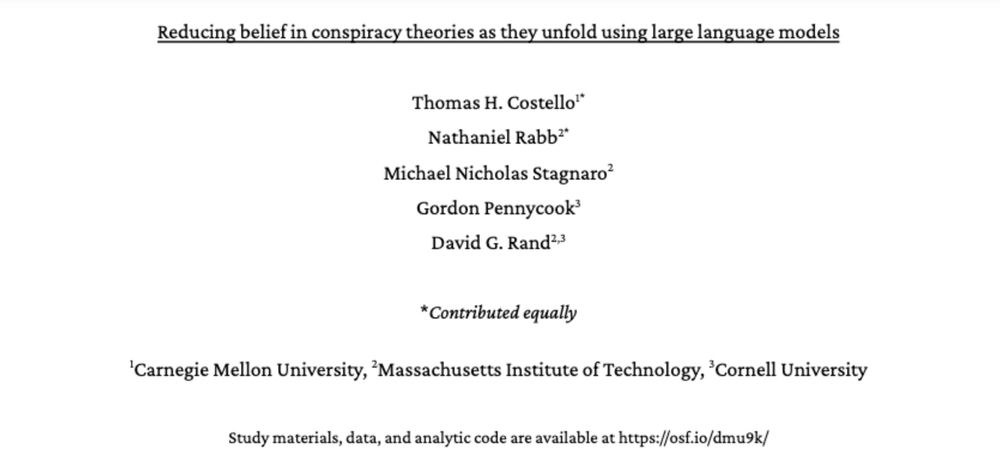
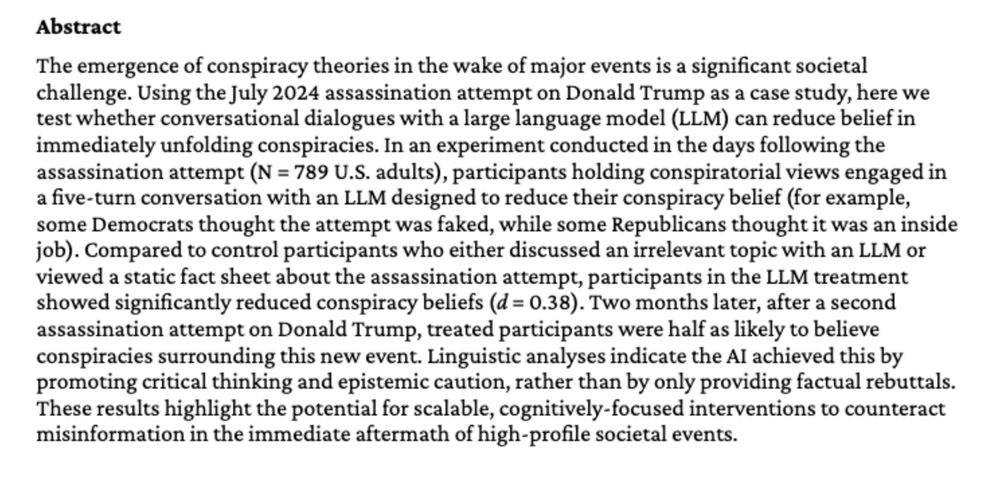
We show they can in a new working paper.
PDF: osf.io/preprints/ps...
We show they can in a new working paper.
PDF: osf.io/preprints/ps...


We show they can in a new working paper.
PDF: osf.io/preprints/ps...


We show they can in a new working paper.
PDF: osf.io/preprints/ps...
arxiv.org/abs/2411.03621
arxiv.org/abs/2411.03621
We found that children have robust object recognition abilities that surpass many ANNs. Models only outperformed kids when their training far exceeded what a child could experience in their lifetime
doi.org/10.1126/scia...
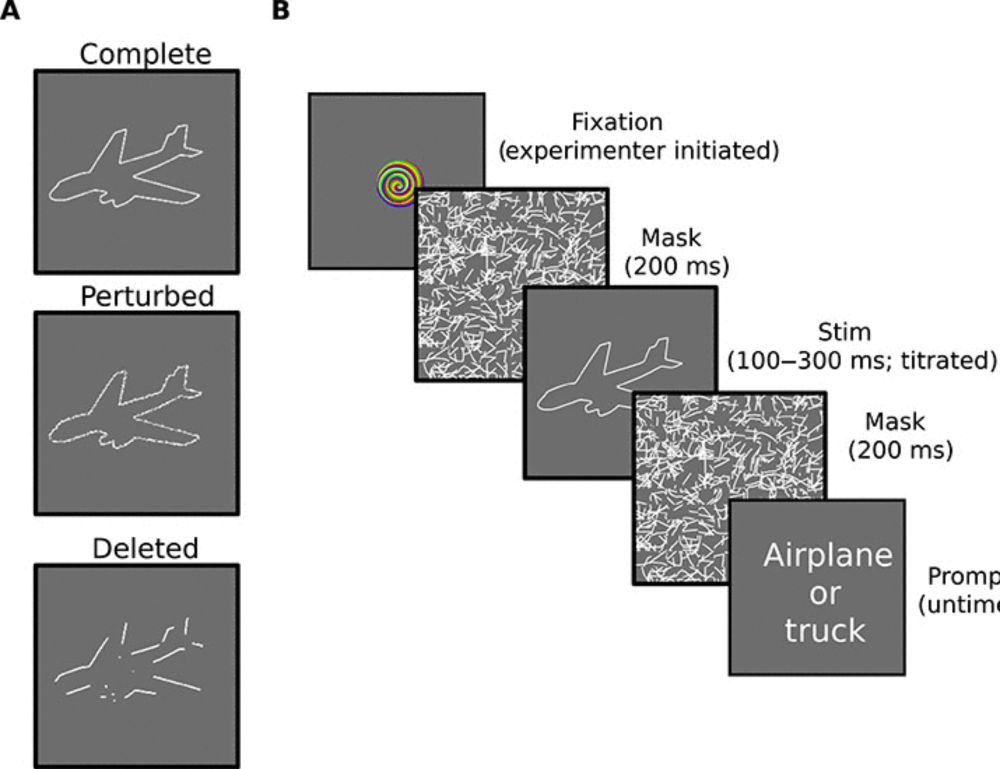
We found that children have robust object recognition abilities that surpass many ANNs. Models only outperformed kids when their training far exceeded what a child could experience in their lifetime
doi.org/10.1126/scia...
www.annualreviews.org/content/jour...
www.annualreviews.org/content/jour...

Well, actually, not "new". We first put this paper online way back Dec 2022... in any case, we think it's really cool!
We find that conspiracy believers tend to be overconfident & really don't seem to realize that most disagree with them
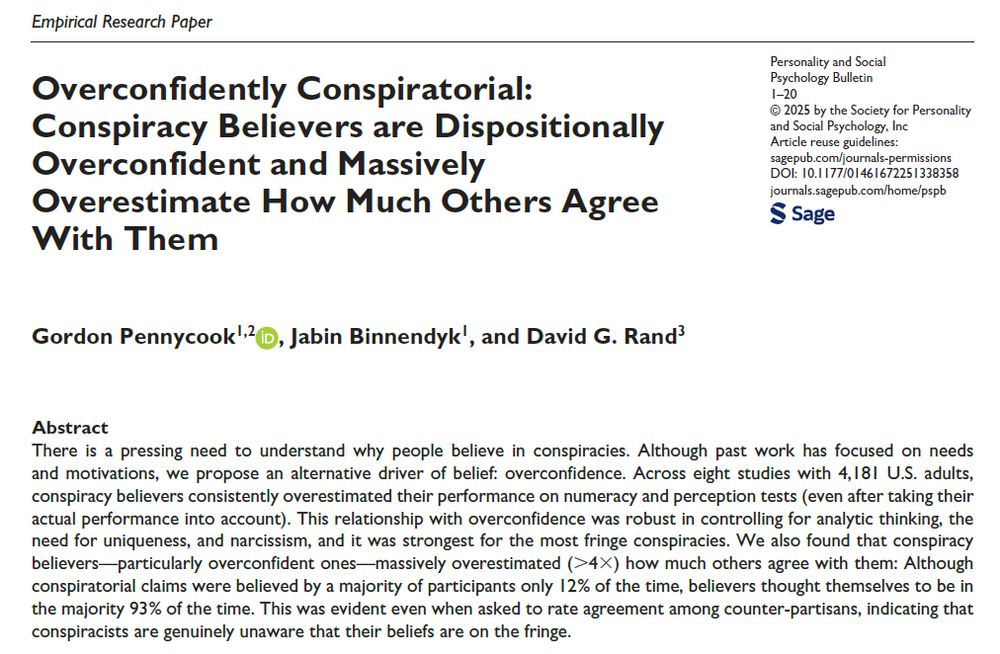
Well, actually, not "new". We first put this paper online way back Dec 2022... in any case, we think it's really cool!
We find that conspiracy believers tend to be overconfident & really don't seem to realize that most disagree with them
I think impossible to replicate this while earnestly trying to get puzzle right?

I think impossible to replicate this while earnestly trying to get puzzle right?
Can AI do "deep canvassing"—the time-intensive, empathic persuasive dialogues that durably reduce prejudice when done by humans?
Spoiler: Yes! We find durable reduction in prejudice toward undocumented immigrants
LLMs make deep canvassing possible at massive scale
osf.io/preprints/os...

Can AI do "deep canvassing"—the time-intensive, empathic persuasive dialogues that durably reduce prejudice when done by humans?
Spoiler: Yes! We find durable reduction in prejudice toward undocumented immigrants
LLMs make deep canvassing possible at massive scale
osf.io/preprints/os...

Can AI do "deep canvassing"—the time-intensive, empathic persuasive dialogues that durably reduce prejudice when done by humans?
Spoiler: Yes! We find durable reduction in prejudice toward undocumented immigrants
LLMs make deep canvassing possible at massive scale
osf.io/preprints/os...
Can AI do "deep canvassing"—the time-intensive, empathic persuasive dialogues that durably reduce prejudice when done by humans?
Spoiler: Yes! We find durable reduction in prejudice toward undocumented immigrants
LLMs make deep canvassing possible at massive scale
osf.io/preprints/os...

Can AI do "deep canvassing"—the time-intensive, empathic persuasive dialogues that durably reduce prejudice when done by humans?
Spoiler: Yes! We find durable reduction in prejudice toward undocumented immigrants
LLMs make deep canvassing possible at massive scale
osf.io/preprints/os...
Prominent theories in political psychology argue that threat causes increases in conservatism. Early experimental work supported this idea, but many of these studies were (severely) underpowered, and examined only a few threats and ideological DVs. 1/n osf.io/preprints/ps...
Prominent theories in political psychology argue that threat causes increases in conservatism. Early experimental work supported this idea, but many of these studies were (severely) underpowered, and examined only a few threats and ideological DVs. 1/n osf.io/preprints/ps...
AI-delivered information is persuasive because of the information — when we trick people into thinking they’re talking to a human, the persuasive effect is identical!
Believers updated their beliefs according to counterevidence. Doesn't matter if they thought they were talking to a human or an AI.
Making the AI seem more "human-like" also had no effect. osf.io/preprints/ps...

AI-delivered information is persuasive because of the information — when we trick people into thinking they’re talking to a human, the persuasive effect is identical!
Q: Are the persuasive effects of AI dialogues conditional on the source being AI? That is, if a human was saying the very same things, would the persuasiveness diminish?
A: No, it doesn't seem to matter whatsoever.
In a new working paper, we show that the effect persists even if the person thinks they're talking to a human: osf.io/preprints/ps...
🧵
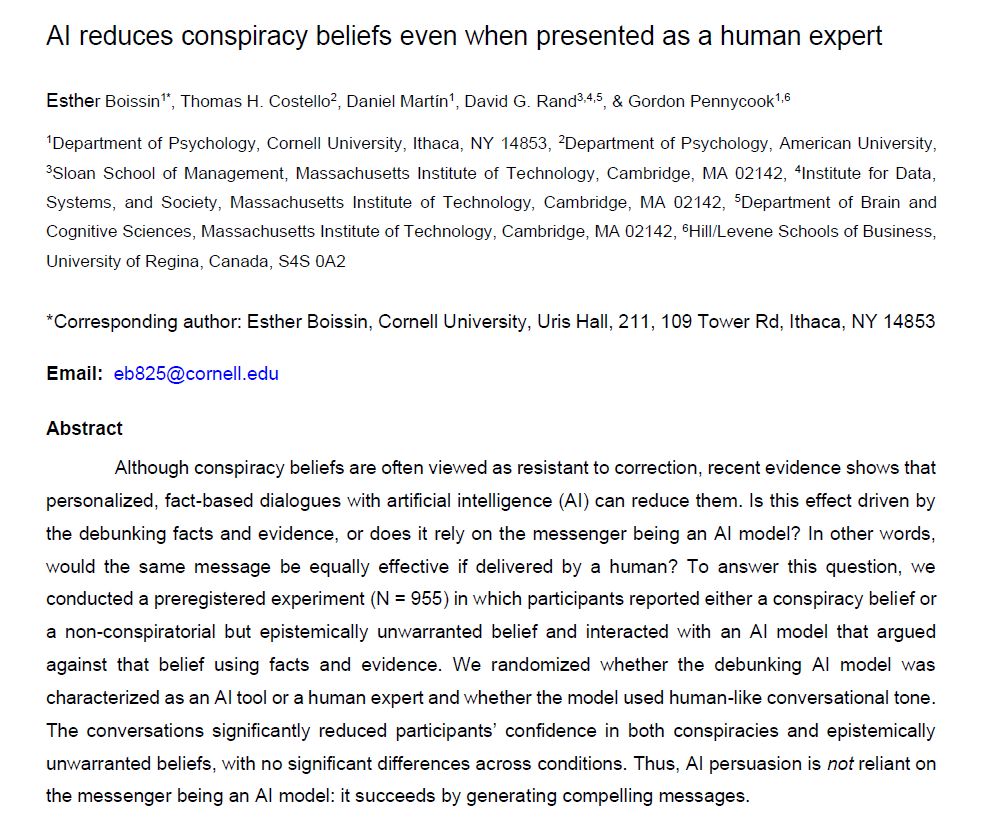
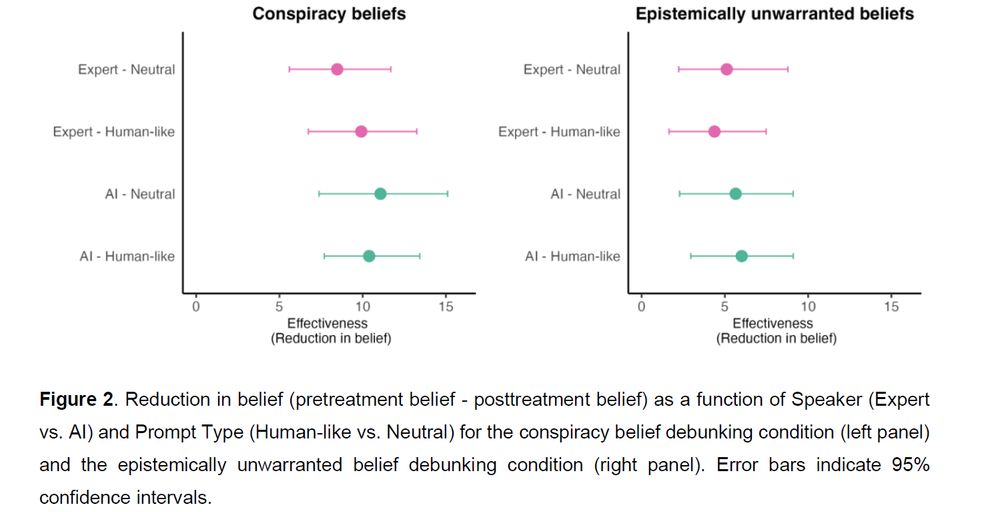
Q: Are the persuasive effects of AI dialogues conditional on the source being AI? That is, if a human was saying the very same things, would the persuasiveness diminish?
A: No, it doesn't seem to matter whatsoever.
In a new working paper, we show that the effect persists even if the person thinks they're talking to a human: osf.io/preprints/ps...
🧵


In a new working paper, we show that the effect persists even if the person thinks they're talking to a human: osf.io/preprints/ps...
🧵
www.cbsnews.com/video/ai-cha...

www.cbsnews.com/video/ai-cha...

